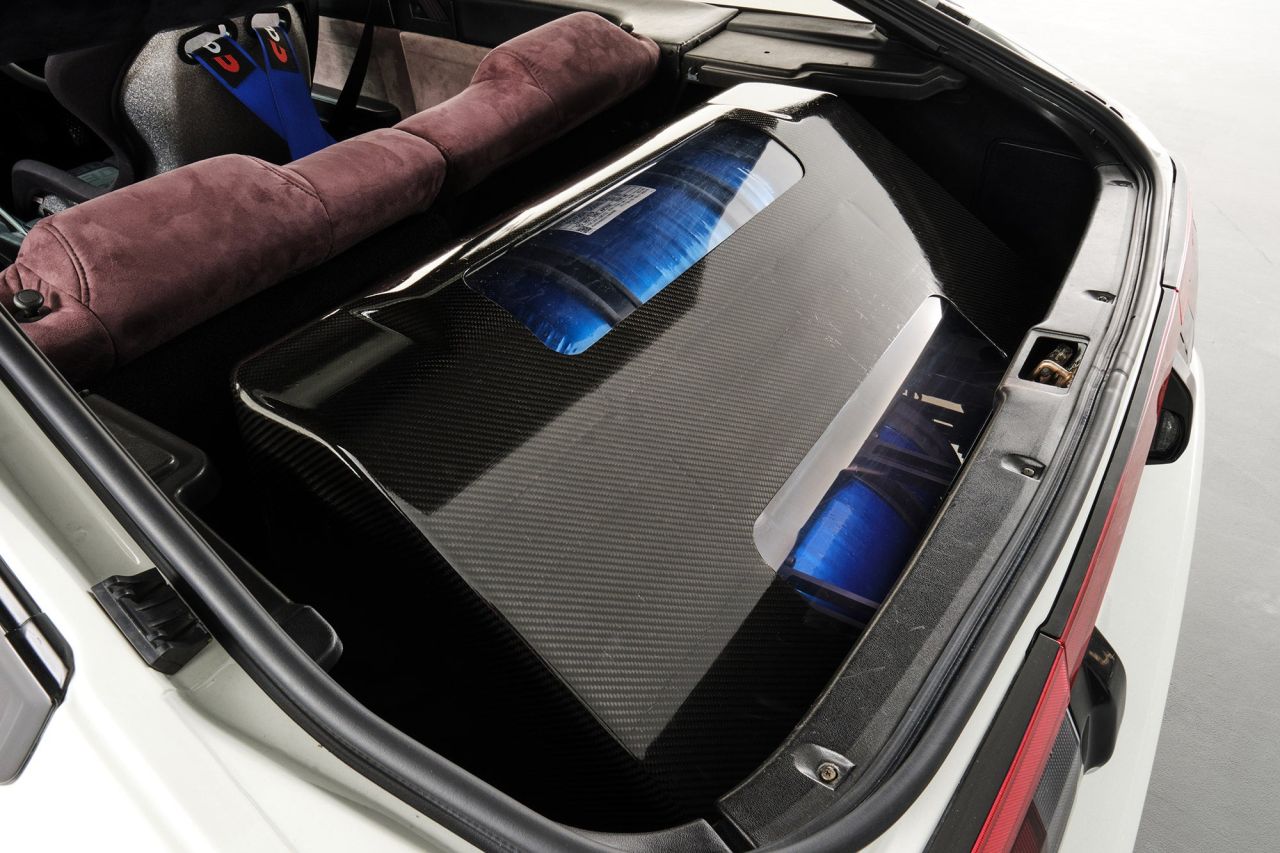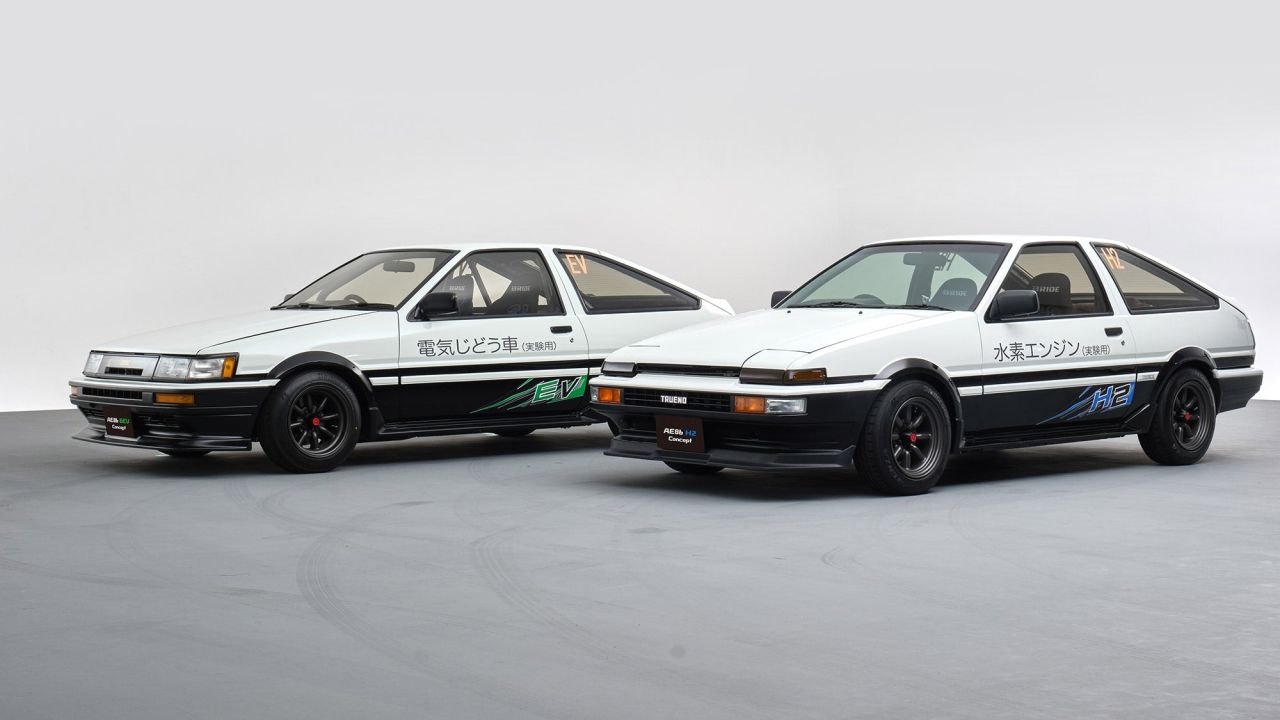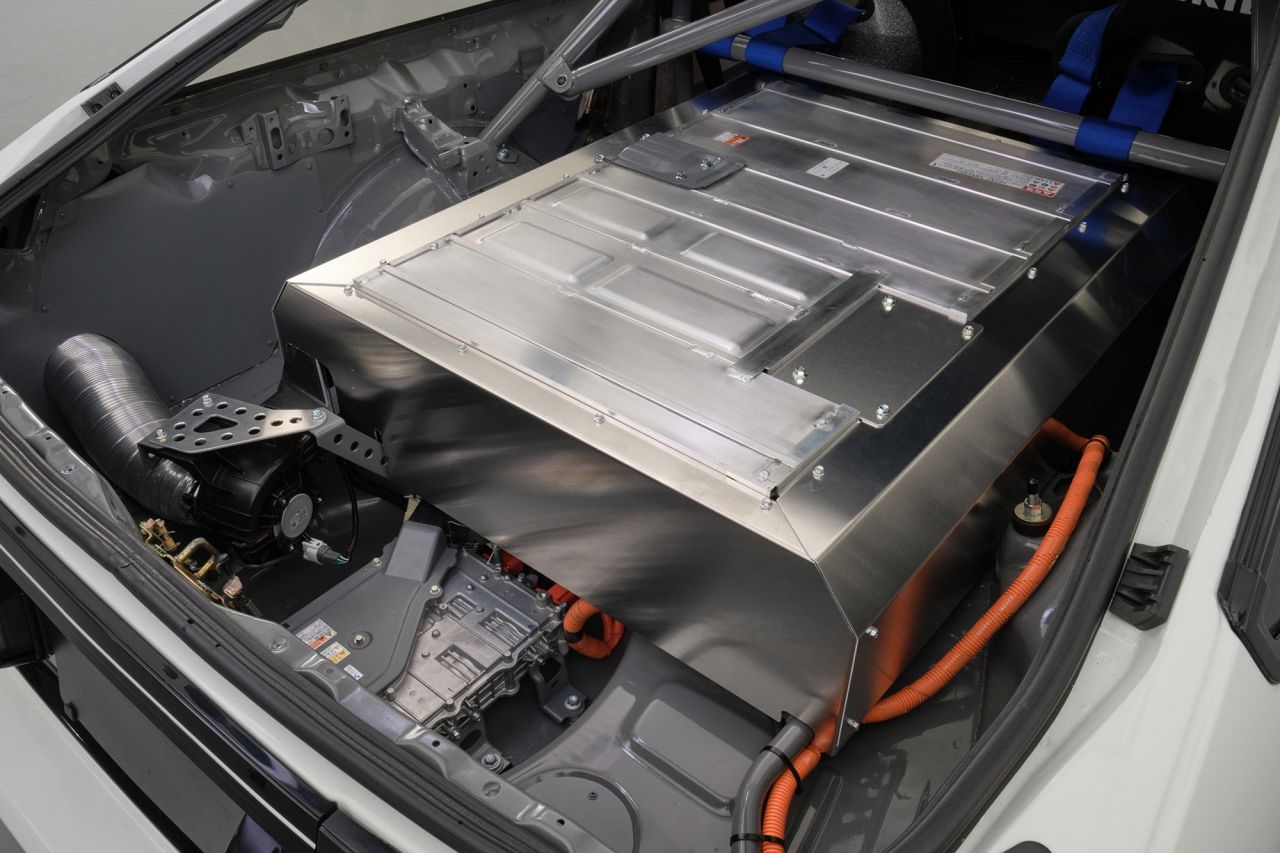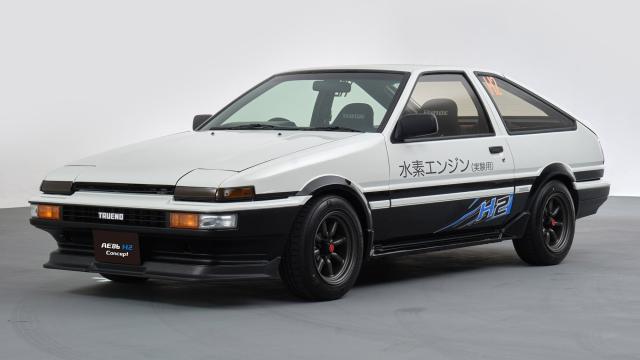It’s easy to get fatigued by alternative-energy restomods. The thought of taking a beloved enthusiast car and transforming it to ensure continued enjoyment for hundreds of more miles is very enticing, but also very unattainable. That’s why I find cars like the AE86 H2 and EV concepts that Toyota just revealed for the Tokyo Auto Salon so bittersweet. There’s a silver lining to these experiments though: you might just be able to drive them one day.
That’s not to say they’ll be affordable, but Toyota is working toward an admirable goal here. Both the Sprinter Trueno hydrogen and Corolla Levin EV concepts seek to preserve the character of their original drivetrains. That’s admittedly a bit easier for the Trueno, as it keeps its original 4A-GE four-cylinder, only it’s now fed by two hydrogen storage tanks sourced from a Mirai. That’s right — this isn’t a fuel-cell vehicle.

Toyota has proven the technology in its hydrogen-powered Corolla campaigned in Japan’s Super Taikyu endurance series. The automaker claims that “other modifications, including fuel injectors, fuel pipes, and spark plugs, have been kept to the minimum” in the hydrogen conversion process. That means the manual transmission is indeed still intact.
What may surprise you more is that the Levin battery-electric concept also keeps its third pedal and stick. That gearbox is connected to the electric motor out of a Tundra i-Force hybrid, and power is stored in a Prius Prime battery pack occupying the combined space of the trunk and rear bench. The motor only contributes 48 horsepower in Toyota’s full-size pickup, so even granting potential modifications, don’t get any wild ideas about the power coursing through the AE86’s rear axle here, in spite of the hatch’s manga-inspired exterior.

Those batteries are guaranteed to be heavy as well, but the weight gain is in part offset by the removal of what looks to be pretty much all non-essential material inside the cabin, including that rear bench. Toyota says its engineers were able to maintain the hachi-roku’s renowned front-rear weight balance “as much as possible” thanks to tech pioneered by Lexus’ forays into electrification.

Of course, it’s easy for a manufacturer to go to these lengths to give a few cars in its heritage collection a second wind. But Morizo himself — Toyota CEO Akio Toyoda — expressed on stage at the event that he’d really like to support these sorts of conversions in the future for owners:
There are lots of people here at Auto Salon who want to enjoy their car life with their favourite cars. Although the AE86 conversion technology is still under development, by talking about this today with car lovers, I hope to dismiss the fear that we won’t be able to drive our beloved cars when we go carbon neutral. On the contrary, there is a carbon neutral path that car lovers can take.
That’s nice to think about, because I don’t want to fawn over another electro-mod like the Hyundai Grandeur Heritage, knowing full well it’ll spend the rest of its days sitting inside four walls, existing for no one’s driving pleasure.

Leave a Reply